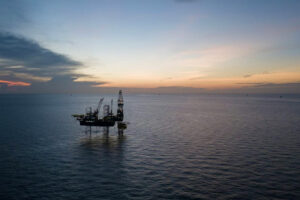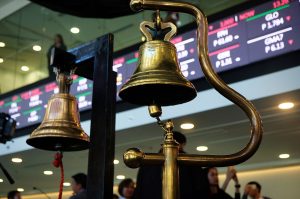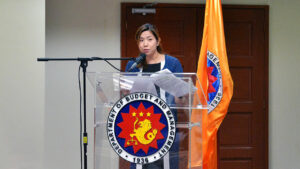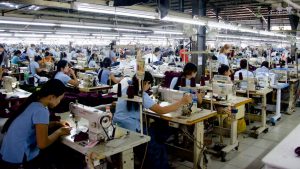On the one hand, there is coal. But energy sourced from coal is dirty and has been a major contributor to greenhouse emissions that have cumulatively wrought damage to the climate for hundreds of years.
On the other hand, nations of the world have acknowledged this and in fact have committed to gradually reducing humankind’s dependence on coal. There is now a global shift towards renewable energy (RE) sources like wind, solar, and hydro, albeit in varying degrees of progress and commitment.
The Philippines has joined the global shift. More and more Filipinos are becoming aware of the need to go renewable to mitigate the effects of climate change. After all, we are one of the countries deemed most vulnerable to extreme weather conditions and flooding brought about by climate change.
But while renewable energy is the way forward, the transition cannot happen in an instant. During last year’s State of the Nation Address, President Ferdinand Marcos, Jr. set ambitious targets in this regard: By 2030, RE’s share in the power mix should be 35%. By 2040, this should increase to 50%.
In the meantime, our power requirements continue, rendered even more urgent by our pursuit of middle-income status in the global economy and the need to provide a stable, sustainable, and inclusive economy for our people. We need energy to keep the economy going and even expand it. But if we are supposed to scale down on using coal and if the shift to RE will take time, how are we going to live in the present?
This is the reason liquefied natural gas (LNG) is figuring in conversations. LNG plays a crucial role in this national security imperative by diversifying supply, reducing import dependence, and ensuring reliable power generation. Its strategic importance lies in its ability to provide a stable energy source that bolsters the country’s resilience against supply disruptions, supports critical infrastructure, and underpins long-term economic stability.
Natural gas is not new to the Philippines. We have the Malampaya gas field that supplies four major plants in Luzon, accounting for about 2,081 MW or 12% of the grid’s dependable capacity. However, despite the fact that Mr. Marcos signed the renewal of the Malampaya Service Contract, extending it to 2039, the gas field is fast depleting, thus exacerbating the challenge to find the next energy source.
The urgency is clear: between these twin concerns which are equally important, we have to do something during the crucial transition period. Issues at this phase will lead to power shortages that would derail our nation’s economic targets.
Stability and security are as important as availability. Access to reliable, affordable, and sustainable energy sources is critical for powering industries, driving economic growth, and ensuring the well-being of Filipinos. Any severe disruption to the energy supply can undermine economic productivity, competitiveness, and stability — directly affecting our security and economic prospects. A robust, self-reliant energy sector strengthens the Philippines’ ability to withstand external shocks or foreign pressure.
The Stratbase ADR Institute this week conducted a forum that sought to explore ways by which public-private partnerships can help boost the LNG sector. The gathering brought together representatives of the government and the private sector to talk about ways to collaborate more closely toward this aim.
In a message, Senator Sherwin Gatchalian of the Senate Committee on Energy, said that the Philippine Downstream Natural Gas Industry Development Act is crucial for filling policy gaps and strengthening the natural gas sector by allowing private sector participation across the entire value chain.
Energy Secretary Raphael Lotilla said that his department is formulating a Natural Gas Development Plan to provide investors guidance and policy, the legal requirements, and incentives in putting up LNG facilities and other infrastructure requirements, including our future development plans and programs.
He called on stakeholders and partners in the private sector to assist the government in creating a resilient, self-reliant, and sustainable energy future for the Philippines.
Meanwhile, CitizenWatch Philippines co-convenor Christopher Belmonte said that the day’s discussions should be a continuing collaboration. We must continue to work together, leveraging LNG to bridge our current energy needs while paving the way for a sustainable and cost-effective future.
“Our goal is clear: to provide every Filipino with reliable, affordable energy that supports both economic growth and environmental sustainability,” he said.
The successful integration of LNG into the energy mix is a critical step toward achieving the long-term vision of a sustainable and resilient energy system. As a transitional fuel, LNG supports the shift from traditional fossil fuels to renewable energy sources, aligning with global trends towards decarbonization and sustainability. This transition positions the Philippines as a proactive player in the global energy landscape, demonstrating a commitment to environmental stewardship and energy innovation.
By adopting LNG, the Philippines not only addresses immediate energy needs but also builds a foundation for a future powered increasingly by clean and renewable energy sources, ensuring energy security and sustainability for generations to come.
Let us continue these LNG conversations as we strive to secure both our environmental and our economic future.
Victor Andres “Dindo” C. Manhit is the president of the Stratbase ADR Institute.





